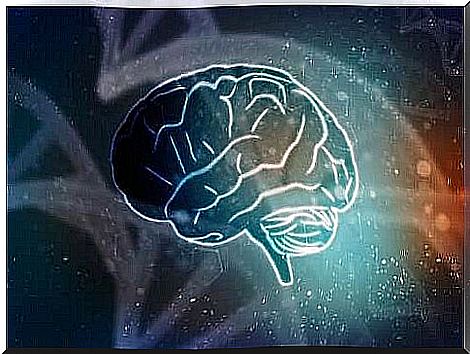The Difference Between Clinical Psychology And Neuropsychology

Psychology is a science that arose from the need to know and understand people. Over time, many specialties in psychology have evolved. These specialties are growing and changing according to their area of focus. It is within this context that we can talk about the difference between clinical psychology and neuropsychology.
As new approaches emerge, specialization increases along with the number of questions we face. In this article we will try to explain the difference between clinical psychology and neuropsychology.

Clinical psychology
Many people attribute the beginning of this approach to a man named Lightner Witmer who established the first psychology clinic in 1896. This new branch solidified along with the creation of the American Psychological Association, or APA.
In the beginning, the goal of clinical psychology was to find features or internal factors that lead to people developing psychopathological conditions. Instead of studying the person’s condition in isolation, clinical psychology looks at the factors that control and intervene in their behavior.
This psychological approach started as a study of “the abnormal”. Consequently, the area of action evolved around treating and explaining the condition.
Over time, prevention of mental illness and improvement became a primary goal in clinical psychology. As a result, psychologists began to work on techniques to avoid the development of pathologies by teaching healthy mental habits.
In the same way, experts in clinical psychology began to implement what is called “counseling therapy”. This means teaching people to solve their problems effectively in situations that may arise in everyday life. As a result, emotional support became part of the practice.
Neuropsychology
Neuropsychology was formally established in the early 20th century by a Russian man named Alexander Luria. His research involved developing techniques to study the behavior of people with central nervous system damage.
These studies provided neurologists with enough data to map the location and extent of the injury so that they could find the best way to intervene.
Neuropsychology thus focuses on people with brain damage who alter their cognitive functions in some way. Consequently, the goal of this approach is to evaluate and rehabilitate the patient’s cognitive function and behavior. Today, neuropsychologists work with children with neurological developmental disorders, as well as patients with brain damage.
What is the difference between clinical psychology and neuropsychology in the clinical environment?
Basically, clinical psychology focuses on the diagnosis and treatment of emotional disorders, personality disorders and behavioral problems. It includes conditions such as depression and anxiety. It can also provide remedies for dealing with behavioral disorders such as hyperactivity.
On the preventive side, clinical psychology teaches patients the following:
- Coping strategies for complex situations.
- Social skills.
- Emotional understanding and control.
The goal is for the patient to get to know themselves and be able to function on a social and cognitive level. As a result, they can improve their quality of life.
The difference between clinical psychology and neuropsychology is their functions in the clinical sphere. The latter deals with the cognitive and emotional evaluation related to changes in the brain. It also develops processes to rehabilitate higher-order functions so that the affected person can develop autonomy and preserve their quality of life.
As such, neuropsychology tends to focus on people who have problems with memory, attention, practice (learned motor activity), gnosis (the brain’s ability to recognize information learned in the past), language, and executive functions.
Neuropsychologists also work with the cognitive aspects of mental disorders, such as schizophrenia or obsessive-compulsive disorder.
Among the goals for rehabilitation are recovery of what is damaged and stimulation of cognitive functions so that they develop properly. In cases of permanently impaired function, neuropsychologists can help the patient find strategies to compensate for what they have lost.

What is the difference between clinical psychology and neuropsychology from a research point of view?
Currently, one field of research in clinical psychology focuses on gaining a deeper understanding of psychopathological disorders. The aim is to identify the differences between people who behave in accordance with societal norms and those who do not.
Researchers in clinical psychology are also trying to gain a deeper understanding of individual personal development. Consequently, the studies analyze their factors that may predispose someone to develop an emotional disorder.
Another focus in research is to improve psychotherapy methods . The goal is to find remedies that allow for better diagnosis and treatment of emotional disorders. Researchers hope to develop more precise methods that can adapt to the specifics of each disorder.
Neuropsychology, on the other hand, has a different focus within research. Neuropsychologists have recently begun working hand in hand with cognitive neurologists.
The aim of this collaboration is to understand the role of higher-order cognitive functions in the development of psychiatric and psychological illnesses. Researchers in these fields are also hoping to develop strategies for more effective recovery from these disorders.
Studies have also focused on understanding the consequences of neurological developmental problems for the individual. Researchers are interested in pathologies that appear to be linked to problems with brain development, such as autism and ADHD.
Finally, neuropsychological rehabilitation is also quite interesting. Psychologists want to integrate their therapeutic methods with technological means to make therapy more effective. The idea is that these funds will help therapists to develop activities that reflect the patient’s everyday life more accurately, which will improve the overall therapeutic results.
Conclusions
It is important to clarify that although these two specialties have differences, they complement each other at a clinical and research level. Proper diagnosis and treatment of psychological or neuropsychological disorders should include the perspective of both specialties.
In other words, the combination of these two approaches can contribute to achieving the therapeutic goal of individual autonomy and quality of life.
That said, there are major differences between clinical psychology and neuropsychology. Each of them specializes in different clinical spheres. In other words, one focuses on emotional and behavioral problems, while the other focuses on cognitive deficits and brain damage.
Finally, we can say that each specialty is at a separate level when it comes to research and thus focuses on aspects that are particularly relevant to it. That said , advances in both approaches will help to improve the resources and understanding of many aspects of mental health.









